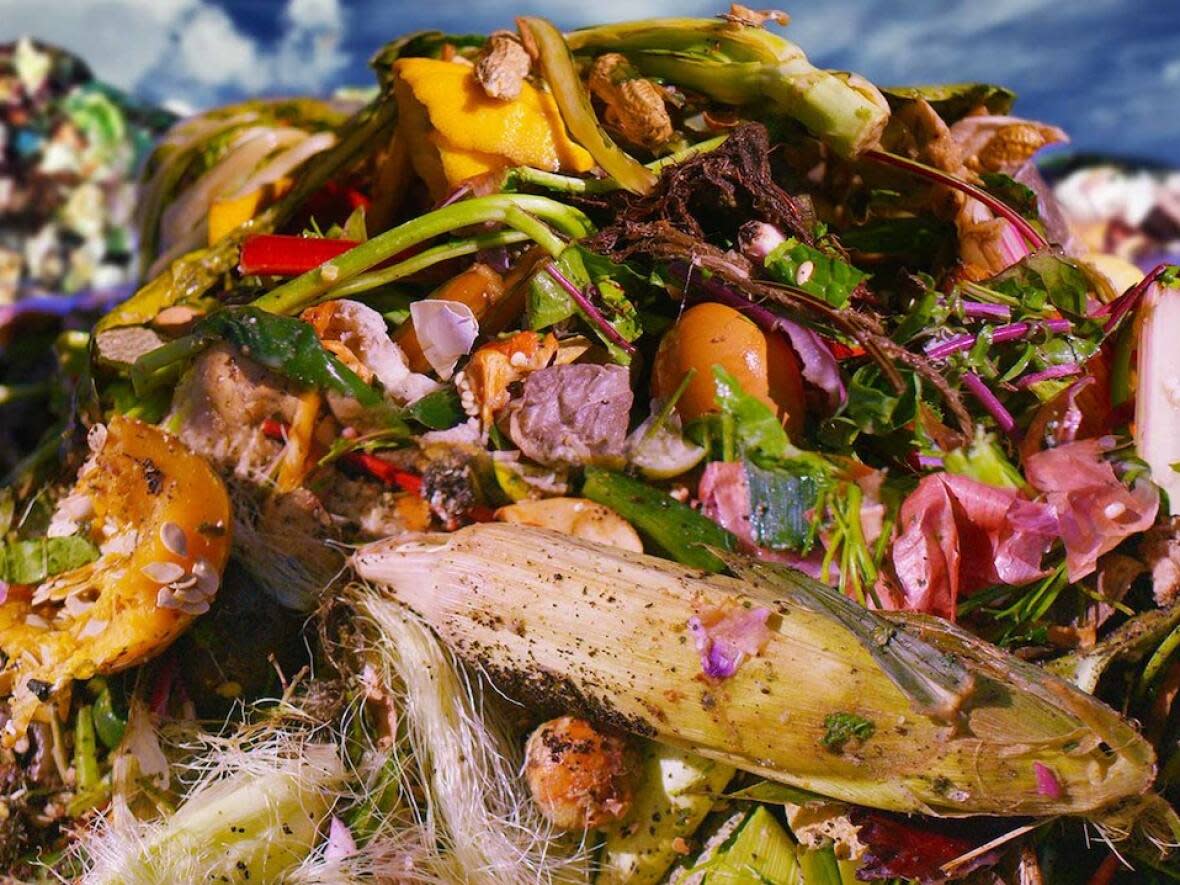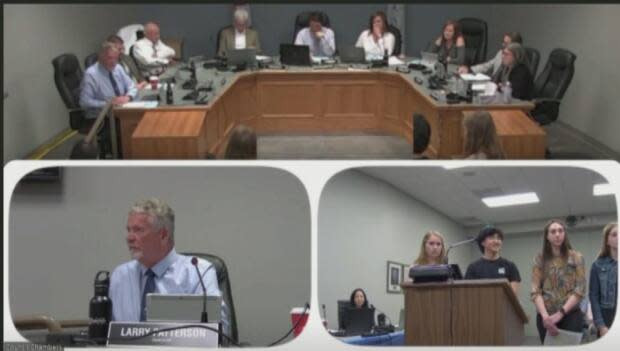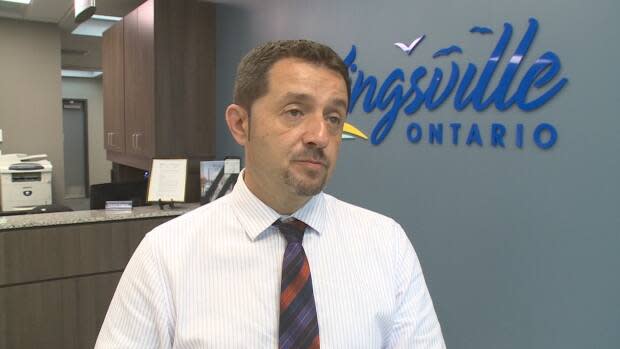Students plead for Kingsville to support organics waste program

A delegation of four high school students appeared before Kingsville council Tuesday night, asking the town to reconsider an organics waste diversion program.
Madeleine Huson, Kennedy Hardy, Sydnee Rutgers and Adam Anderson made a presentation at the council's meeting, advocating for a sustainable future for their community.
Hardy, a Grade 12 student at Kingsville High School and minister of environment on student council, started off the presentation.
"We are all dedicated members of our school eco-teams, and we share a common concern that Kingsville has chosen to not participate in the proposed organic waste program," she said.
The students' presentation outlined the local impacts of climate change, including rising lake levels, algae blooms, and increasing heat.
"Our parents even tell us that they used to be able to skate on Lake Erie all winter long, but it almost never freezes anymore," said Rutgers.
Students said they were optimistic when Kingsville joined other local communities in declaring a climate emergency for the town in 2019. The students explained that towns smaller than Kingsville have participated in organics waste programs, and the town is missing the mark by not opting for a similar initiative.

Despite the presentation, council passed a motion to ask Essex County to run the program and collect the tax money for it.
Huson said she was disappointed with the decision.
"In Kingsville, for example, I mentioned generating renewable natural gas, as well as generating electricity that other municipalities in this region are doing or will do," she said.
"For example, Chatham, as we know, that demonstrates that this is possible. It's a sustainable way that Kingsville can achieve the goal of reducing organic waste in the landfill."
Huson told council that as she and her friends reach voting age this year amid provincial and municipal elections, their top priorities are supporting officials who value environmental sustainability and climate action.
Andrew Plancke, director of infrastructure and engineering, commended the students for their research and advocacy but explained that what the students were suggesting comes with a hefty price tag.
"I truly understand what you're saying ... going forward, this program that you're bringing forward to us for reconsideration, this council is all behind that but there is a cost," he said. "A cost that's humongous."
Plancke estimated an increased yearly cost of about $300 to $350 per household for residents to support the program.
He did say he didn't want to students to be shut out of the conversations around the issue, and suggested council have open discussions for allowing the students to meet with council and continue the conversation.
Ontario sets 2025 diversion deadline
Ontario municipalities have been told to come up with a plan to divert food scraps from the landfill, and the deadline is looming.
By 2025, larger municipalities like the City of Windsor are required to divert 70 per cent of their organic waste and offer curbside collection.
Smaller communities — Leamington, Amherstburg, LaSalle and Tecumseh — only have to divert 50 per cent. They don't need to provide curbside collection, but instead can establish a public drop-off depot or community composting area.
Kingsville, along with Essex and Lakeshore, is currently exempt due to its population size.
The municipality wants responsibility and cost for the program to be assumed by the county, and at Tuesday's meeting a motion was passed giving the mayor and deputy mayor the green light to make the argument to the county.

Kingsville Mayor Nelson Santos previously told CBC News the price tag is the reason the municipality doesn't want to opt in.
But according to the body in charge of implementing the organics program — the Essex-Windsor Solid Waste Authority (EWSWA) — the municipality can't unilaterally say no.
A letter from Gary Kaschak, chair of the EWSWA, dated May 10 notes that the authority takes direction from the City of Windsor and Essex County — not directly from lower-tier municipalities.
And since the city and the county have passed motions "clearly direct[ing] the EWSWA to explore a regional solution for organic waste" the authority can't move forward with a request for proposals for the project that leaves out any lower-tier municipalities.
At county council in March, the Town of Essex also voted against the motion to move forward with the project, though Kaschak's letter says that Kingsville appears to be the only lower-tier municipality that is "voicing its opposition to participation."
Essex County Warden Gary McNamara said that early estimates suggest the program could cost $300 million, plus $6 million to $8 million annually.


